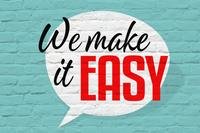In our military family, we believe there is no higher calling than making the world a safer place. In our Veteran Employment Project family, we believe there is no higher calling than helping warriors and spouses find their next high-impact job.
That's why we spent the last year hosting 11 engaging master classes, producing dozens of veteran jobs articles and sending out weekly veteran jobs newsletters to keep you on track, informed and encouraged when it comes to your own job hunt.
Before we close out the year, we want to offer the 37 best tips we learned from experts, colleagues, employers, recruiters, veterans service organizations, coaching clients and our generous community of military job seekers.
The biggest trend in job hunting this year is to lean into artificial intelligence (AI) tools to help with your job hunt, but you shouldn't stop there. These tips cover every category of job hunting, from identifying your next role to resume writing to networking to the last moment of negotiation before you accept your job offer.
Here are our 37 best tips for veteran job seekers in 2024:
Identify Your Next Role
1. Enter the dragon. Start your job hunt by asking ChatGPT, HIX Chat, YouChat or any of the other recommended AI tools a simple question, like: What kind of job can I get with this kind of experience? Copy and paste your resume or your Linkedin profile into the chat box and see what the AI matrix behind the scenes spits out.
2. Get off to a great start. If you are looking for a job in 2024, get your job hunt off to a great start (or a fresh, new start with no mistakes in it) with our newest free master class "New Year, New Career" on Thursday, Jan. 25, 2024, at 4 p.m. EST. Sign up today!
3. Expand your AI comfort. Lean into AI tools on LinkedIn that will help you identify suitable target jobs. Don't know how? Start with our free Stealth LinkedIn Demo.
4. Identify "civilian" skills you learned in the military -- and what to call them now. Download our work skills assessment Dream Job Handout. By listing the skills you used during your military career, you can figure out which roles, companies and departments will suit you best.
5. Pursue possibilities with a Fortune 500 company. If you plan to leave the realm of defense and government, you will need some mentorship. Get personally matched with a free mentor with American Corporate Partners.
6. Focus on your hard skills. No matter how many times hiring managers tell reporters they long for a veteran's transferable skills like leadership, drive and creative problem solving, no veteran ever got a job based on their transferable skills alone. You will get hired for your hard skills -- what you can do. Your transferable skills -- who you are and how you treat others -- will get you promoted.
7. Believe that there is more than one dream job allotted to you per lifetime. Even if you loved your military career, even if you have already had the dream job, know that plenty of options are out there for you -- especially if you buckle down and network.
Write a Better Corporate Resume
8. Do anything on your resume -- as long as you do it today. Often, you are procrastinating about your resume because it triggers all your anxiety. If you do one small thing on your resume, somehow it breaks your resistance and the rest comes easy.
9. Abandon the master resume. Once upon a time, I could see the advantage of having everything you have ever done written down in one place. Now, I know that is the kind of flawed thinking that keeps you from doing any of the real work of job hunting.
10. Never write a resume without a job listing. In our post-COVID world, it is pointless to write a resume when you don't know what the job is. You need to know the keywords before you can be compelling.
11. Use a keyword extractor. Use a keyword extractor like SkillSyncer or Jobscan to pluck out a group of hard skills from the job listing. Identify where you used those hard skills in your past jobs. The resume will write itself.
12. Dictate your resume to Word. Sometimes, typing gets in the way of good writing. Get out of your head and onto the page by using the Dictate feature of your word processing software.
13. Stop hiding your anxiety behind big words. Sometimes, it seems like a resume is the kind of document that deserves a lot of fancy, fluffy, four-syllable words. Not so much. Usually, those words signify only that you have not written a modern resume with keywords from the job listing.
14. Fill in a template. When writing a checklist resume, it is so much easier if you can start with a template. Find ours (and the checklist resume master class) here.
15. Start with the easiest stuff. On a resume, the easiest stuff is at the back. Work back to front to break through your anxiety and stop procrastinating.
16. Resolve never to send your resume after 5 p.m. Send your resume tomorrow. Time (and sleep) are the great healers. A few hours between finishing the resume and sending it off will rest your brain. In the morning, errors tend to stand out in technicolor.
17. Use AI to catch your errors. Use an automated proofreader like Grammarly.com. Available 24 hours a day.
18. Read your resume out loud. This will allow you to catch embarrassing resume mistakes, such as missing words, misspelled words and confusing sentences. Because no matter how strong AI will become, no tool in the world will replace your full attention.
19. Beg your mom or detail-oriented sister-in-law to read your resume (even though you hate anyone to read it). Dare her to find a spelling mistake. Even when AI fails you, certain people in your life will not.
Build a Better Federal Resume
20. Radically improve your chances of getting a federal job. After working with thousands of veterans and spouses who wanted to get federal jobs, I can tell you the one skill that makes the biggest difference and it is free: Act as if federal resumes and corporate resumes are two totally different things. Because they are.
21. Never "write" a federal resume. Build a federal resume according to code. We take you step by step through the federal resume writing process here. Then sign up for our upcoming Undeniable Federal Resume master class in February.
22. Check the federal guacamole for core competencies. Just like guacamole is not guacamole without avocados, a federal resume isn't federal without core competencies. Find out how to find all those secret words and how to use them here.
Networking Is Not What You Think
23. Start networking at a military door. Companies that have a history of hiring veterans want to have you in their network. Start with our list of the 25 Top Employers for 2024.
24. Stop pretending there is a special award for people who navigate transition alone. Networking is the greatest source of active job leads. People who take part in private career coaching, programs from veterans service organizations and our own great Veteran Employment Project master classes can save themselves months of frustration. Sometimes, what you really need is a little feedback to get on the right path. And so many people want to help you.
25. Don't ask, don't sell. Networking has changed in the past couple of years -- especially for senior enlisted. Take a moment to learn the 13 new rules of networking.
26. Get your fourth-grader to read your LinkedIn profile out loud. You get so much advice about LinkedIn during your job hunt that it is hard to know what is effective. One trick is to make sure what you are saying is clear. If you have a grade-schooler or middle-schooler in your family, ask them to read your LinkedIn profile to you out loud. If they stumble, the recruiter will definitely stumble. And move on without you.
27. Pass the "celery test." Make sure your LinkedIn profile, resume and networking info all pass the celery test with our matrix.
28. SkillBridge is not just a bridge. SkillBridge is your network. The Department of Defense SkillBridge program is a great part of your networking effort. Pursue SkillBridge programs early -- even if you don't think you will use them.
29. Pay it forward. Move heaven and earth to let your soldiers, sailors, airmen, Marines, Guardians and chiefs use a SkillBridge program during transition. I know it is not convenient. This is a pay-it-forward moment.
30. Network like a boss. There is a cool way to navigate everything on LinkedIn, from tagging people in a post to requesting a connection. Find out the new rules of LinkedIn for veteran and spouse job seekers.
Interview Like a Champion
31. Buy business cards specifically for your job hunt. If you are so far along in the job hunt that you are ready to interview, you are ready to have a business card. To make it easy, I listed all the instructions for how you can get the right kind of card for less than $20.
32. Practice, practice, practice. Get some practice in before you ever see an interviewer with a deck like The Behavioral Interview Flash Card Deck: Your Ultimate Interview Prep Tool. It will allow you to prep and practice in private.
33. Avoid the Kryptonite answer.
You know you are an amazing leader. I know you are an amazing leader. The hiring manager knows you are an amazing leader. That said, never use the word "leadership" in an interview. Find out what words to say instead.
34. Give good Zoom interviews. Rearrange your office so that you have a good background for all the Zoom interviews you are going to do. Avoid the jittery Zoom backgrounds.
35. Buy yourself some time for brilliance. Learn the 7 classic stall techniques for interviews so you have a little more time to think up the most compelling answer.
36. Generate interview responses with an AI tool. I like AI to be your little helper on the job hunt. You can find AI tools, like Prepper, that are designed exclusively for the interview. They help by offering responses specific to certain jobs, certain companies and certain kinds of interviewers. It won't be perfect, but it will provide an excellent start.
37. Give back. Help us bring you better, stronger, more relevant content in 2024 by taking three minutes to answer our veteran job survey. Get a chance to win free coaching.
-- Jacey Eckhart is Military.com's transition master coach. She is a certified professional career coach and military sociologist who helps military members get their first civilian job by offering career-level Master Classes through our Veteran Employment Project and on her website, SeniorMilitaryTransition.com. Reach her at Jacey.Eckhart@Monster.com.
Find Your Next Job Fast
Transitioning military, veterans and spouses may be qualified for the job, but they are missing the secrets of civilian hiring. Find out everything you need to know with our FREE master class series, including our next class. You can view previous classes in our video library. Questions for Jacey? Visit our Facebook page.







